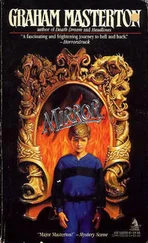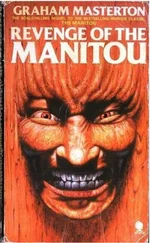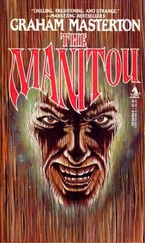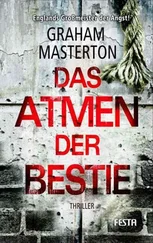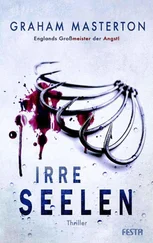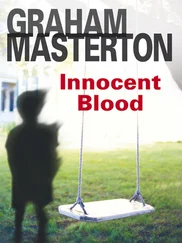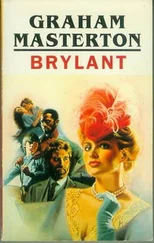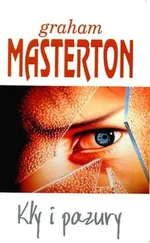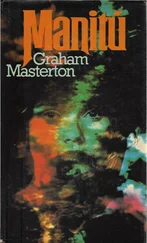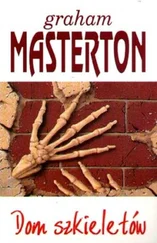“No. She told them over the phone that she was quitting the Saudi job and that was the last time they ever heard from her. She didn’t even collect her wages, and they didn’t know where to send them.”
“They had no address for her?”
DS Paul shook her head. “She told them she was in temporary accommodation at the Paragon Hotel in Earl’s Court. It’s a very cheap place, fifteen pounds a night, popular with backpackers. But wherever she was, she wasn’t there. The management always keep their guests’ passports – you know, just in case they try to do a runner – and no single American females have stayed there for over a year.”
“And nobody else knows where she might have been?”
DS Paul shook her head. “Nobody. But we’ve sent her picture out to the media, and we’re trying to arrange an appeal for information on Crimewatch – that’s a BBC-TV program where we ask viewers to help solving crimes. We usually get a very good response to that.”
“How can somebody just disappear like that? I mean, totally?”
“People do it every day, Mr Winward. There are eight million people in London and it isn’t difficult to get swallowed up, especially if you want to be.”
They ate lunch at a pub called The Frog & Waistcoat, around the back of Victoria Station. It was smoky and noisy and crowded with a mixture of office workers and miserable-looking travelers with too many bulging bags.
“I feel like I’ve walked right into a Dickens novel,” said Josh. Everybody around him was talking very loudly but he couldn’t understand a word they were saying. He had always assumed that the English spoke English the way they did in movies, clipped and precise, but instead they talked in a mangled torrent, and he couldn’t tell when one word ended and another began. He had ordered shepherd’s pie, and then the barman had asked him again if he wanted a pie.
“Yes, the pie.”
“Pie of what?”
“Sorry, I don’t understand.”
“Pie of ordinary, pie of best, pie of Guinness, what?”
He was almost reduced to sign language, but even sign language didn’t help when the girl behind the food counter asked if Nancy wanted a jacket. He thought that they might have inadvertently offended the pub’s dress code.
“Maybe this was a mistake,” said Josh, as he poked at his shepherd’s pie.
“You think that’s a mistake, you ought to taste this lasagne.”
“No, I mean coming here. The police don’t seem to know squat.”
“Oh, come on, Josh. You have to give them time. It was a miracle they even found out who she was.”
“I guess you’re right. But where the hell has Julia been for the last ten months? You’d have thought that she’d have left some kind of forwarding address.”
“Think about it: if she told her employment agency that she was staying at the Paragon Hotel in the Earl’s Court district then she must at least have known it, even if she didn’t actually check in there. So maybe we should look around Earl’s Court, and see if we can find anybody who remembers her.”
“You don’t think the police are going to do that?”
“I’m sure they will. But where’s the harm in us doing it, too?”
Josh took a cautious mouthful of pie. “This is weird,” he said, after a while. “I hate it, but I want some more.” He paused, and then he said, “What do you think a ‘jacket’ is?”
Nancy said, “We could print up some enlargements of a picture of Julia, and stick them on lamp-posts and stuff. You know, ‘Have You Seen This Girl?’”
Josh nodded. “That’s a good idea.” He pushed aside his plate and opened up his newly bought A-Z Guide to London. “I guess we’re here, right? Earl’s Court is here, only three subway stops away. If we can find ourselves a hotel around there …”
They took the tube to Earl’s Court, where the sidewalk was crowded with young people waiting for nothing in particular and old people shuffling along with shopping baskets on wheels. There was a pungent smell of hamburgers-and-onions in the air.
They found the Paragon Hotel two streets down, in Barkston Gardens – a red-brick Edwardian building with battered cream paintwork and drooping net curtains as gray as cobwebs. Inside it was gloomy and overheated and the crimson patterned carpet was worn down to the string. Behind the reception desk sat an overweight woman with dyed-blonde hair and a black suit that was far too tight for her.
“If you’re looking for a room, dear, sorry – we’re full to busting.”
“No, no, we don’t need a room. We were wondering if you might remember seeing this girl.” Josh handed over a picture of Julia standing outside a bookstore. “We’re talking about a year ago, last spring sometime.”
The woman found a pair of thumbprinted reading glasses and peered at the photograph closely. “No,” she said, after a while. “Can’t say I do. But, you know, they come and they go, thousands of them, these young people, and they all look the same to me. All looking for something, or running away from something.”
“You’re absolutely sure you don’t remember her?”
“I honestly wish I did. But, no. I’m sorry. Missing, is she?”
“You could say that. She’s dead.”
“Oh, I’m really sorry. She’s not that girl the police were here asking about? The American one?”
“That’s right, Julia Winward. She’s my sister. She was my sister.”
“It’s a bloody tragedy,” said the woman, shaking her head. “So young, too. They come and they go, you know, thousands of them, and sometimes I feel like taking hold of them and shaking them and saying, ‘Where are you going? What on earth do you think you’re going to find?’ But still they come, year after year. So hopeful, you know. Backpacking round God knows where, looking for God knows what.”
“We’re going to have some copies of this picture printed,” said Nancy. “Is it OK if we pin one up in here?”
“Oh, of course it is. You’re very welcome. But I’ll tell you what you ought to do. Make a big picture like a poster and stand outside the tube station. Just stand there, all day. If she’s ever been around here, sooner or later somebody will recognize her.”
“Well, thanks, you’re really kind,” said Josh.
“Don’t mention it. I lost somebody once. My only son Terence. He went off to India, that was back in the Beatles days. Can’t think what he was looking for. We all end up with two kids and a mortgage and a clapped-out Datsun, don’t we? We don’t need no maharishi to tell us that.”
She found a small lacy handkerchief in her pocket and dabbed her nose. “He died, my Terence. Hepatitis. Such a waste. All those shirts I ironed for him, for school. All those packed lunches. And they cremated him, and scattered his ashes in the bloody Ganges.”
They found a hotel overlooking West Brompton Cemetery, a real Victorian cemetery with tilting headstones and weeping angels. In complete contrast, the hotel was a seven-story concrete block with air-conditioning and new blue carpets and crowds of bewildered Japanese around the reception area. It could have been any hotel anywhere at all, and that was what Josh wanted. As they went up in the elevator he saw himself reflected in the stainless steel doors and he thought that he looked like a ghost. His hair was tousled and his eyes were reddened and his nose looked twice as big as normal. His first day in London had left him grimy and depressed and tired, and he was desperate for a cold beer and a shower and some mindless TV.
He showered until his skin was bright pink, and then he lay on the bed in his complimentary Sheridan Hotels bathrobe watching The Simpsons and drinking Harp lager out of the can. It was four o’clock now, and the sun was much lower. Nancy came out of the bathroom toweling her hair. “I don’t know how you can come all the way to England and watch The Simpsons. Apart from that, you hate The Simpsons.”
Читать дальше

